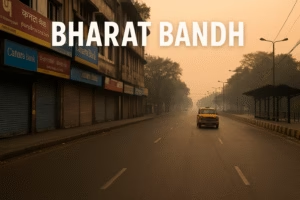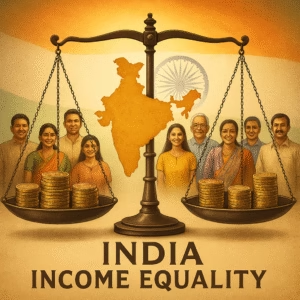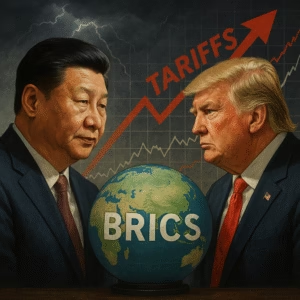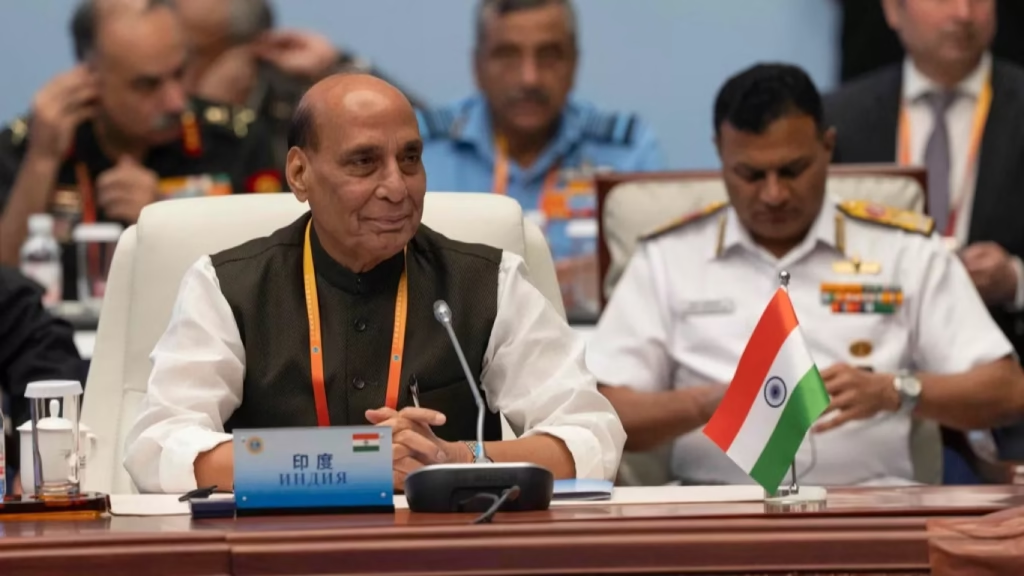
India rejects SCO statement
India Walks Out of SCO Statement: Here’s Why It Refused to Back the Pakistan-Biased Draft
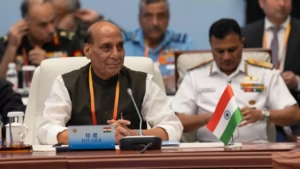
New Delhi, June 26, 2025: In a bold diplomatic move, India has refused to sign the joint statement issued by the Shanghai Cooperation Organisation (SCO) after what it described as a “biased narrative” that omitted mention of the Pahalgam terror attack while subtly amplifying Pakistan’s agenda.
What Triggered India’s Disapproval?
The SCO Defence Ministers’ meeting, hosted in Astana, Kazakhstan, saw India sharply breaking from consensus. The draft joint communiqué made general references to regional peace and terrorism but failed to mention the brutal April 22 Pahalgam attack in Jammu & Kashmir, which claimed 26 innocent lives. Instead, it included language sympathetic to incidents in Balochistan — widely viewed as an attempt to bolster Pakistan’s geopolitical narrative.
Rajnath Singh’s Stern Message
Indian Defence Minister Rajnath Singh chose not to mince words. He insisted that “there cannot be double standards in dealing with terrorism.” He emphasized that the statement must explicitly recognize the grave attack in India and condemn cross-border terrorism — a thinly veiled reference to Pakistan’s alleged support of terror groups operating in Kashmir.
When these additions were not accepted, India walked away from endorsing the declaration — a rare and highly symbolic act of dissent in a multilateral forum.
Why Is This Significant?
The Shanghai Cooperation Organisation, though often touted as a regional security bloc, has rarely taken strong positions against terrorism emanating from member states. India’s refusal to sign the document is being viewed as a diplomatic assertion of sovereignty and a demand for unbiased accountability.
Sources indicate that China and Pakistan were opposed to including any specific reference to Pahalgam. This prompted India to hold its ground, even if it meant standing alone.
Ministry of External Affairs Speaks Out
MEA spokesperson Randhir Jaiswal clarified that India could not endorse a document that failed to explicitly address cross-border terrorism and instead included references that served the narrative of a “particular country.” Though not named, the reference was clearly aimed at Pakistan.
The Pahalgam Terror Attack: A Brief Recap
On April 22, a convoy of buses carrying pilgrims was ambushed by militants near Pahalgam. The coordinated attack killed 26 and left over 40 injured. Indian agencies later claimed that the attackers belonged to a Pakistan-based terror group. While Pakistan denied involvement, the evidence cited by Indian intelligence and subsequent media reports raised international concerns.
China’s Position: Silent Yet Strategic
Despite hosting the SCO meet, China avoided taking a position on India’s dissent. Instead, it simply stated that the meeting was “productive,” sidestepping the critical issue of the statement not being adopted in full consensus. This neutrality is being interpreted as passive backing of Pakistan’s stance, which further irked Indian officials.
Pakistan’s Narrative on Balochistan
By including references to Balochistan, the statement appeared to echo Pakistan’s claims of external interference in its western province. India, which has always rejected any such allegations, viewed this as a dangerous precedent where terrorism against India was ignored while internal Pakistani issues were globalized.
Implications on Regional Diplomacy
- India’s move may challenge SCO’s credibility as a neutral platform.
- It reinforces India’s global stance of zero tolerance toward terrorism.
- This could lead to increased bilateral tensions, especially with Pakistan and China.
Some experts believe India’s rejection of the joint statement could become a model for other nations reluctant to toe China-led narratives in multilateral settings.
Expert Reactions
“India is not only protecting its sovereignty but also calling out hypocrisy. This is a message to the world that terrorism cannot be whitewashed in the name of diplomacy.” — Prof. Rajiv Bhatia, Foreign Policy Analyst
Others point out that India’s independent stance may lead to temporary diplomatic isolation within SCO but will likely earn respect globally for speaking out against terror inaction.
What Lies Ahead?
India’s rejection of the SCO statement sends a clear signal: it will not accept silence or bias on terrorism. With geopolitical tensions in South Asia already high following the Pahalgam attack and cross-border skirmishes, New Delhi is doubling down on its narrative of “action against terror” rather than engaging in symbolic diplomacy.
The global community, especially countries like Russia and Central Asian republics, will now be under pressure to respond more strongly to terrorism concerns rather than maintaining a status quo approach to protect regional alliances.
Source: Reuters – India Refuses to Endorse SCO Draft
Checkout latest news !
About The Author
Discover more from Trendy India News
Subscribe to get the latest posts sent to your email.
